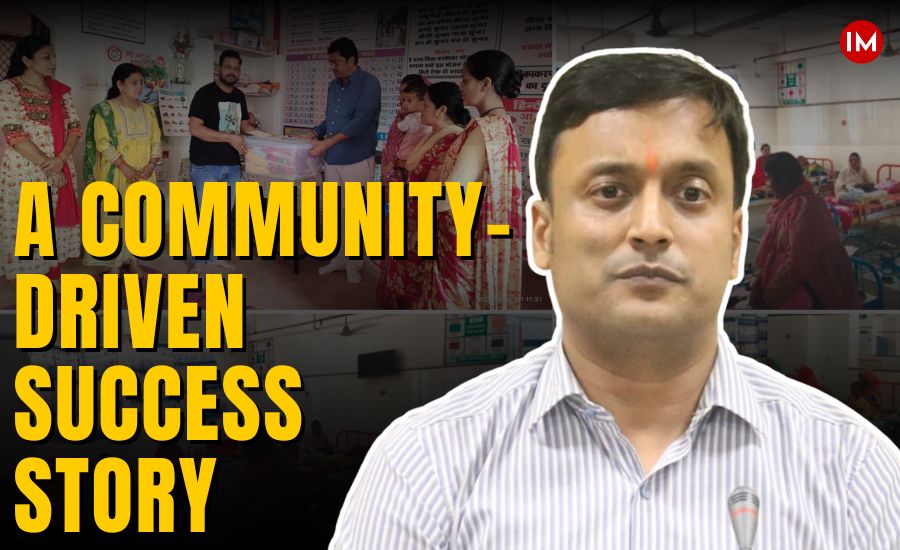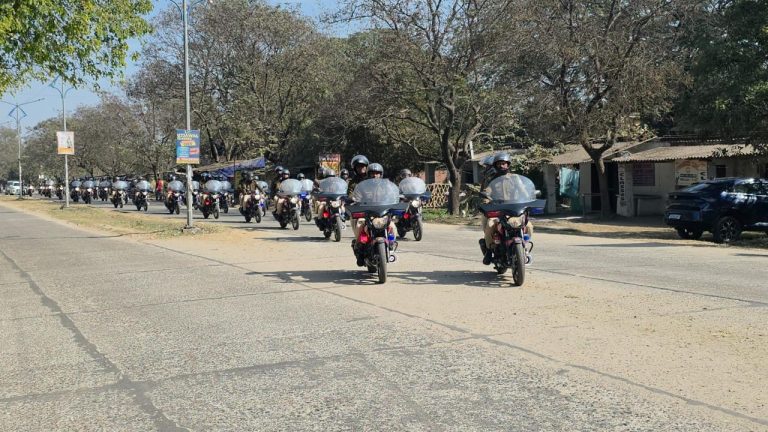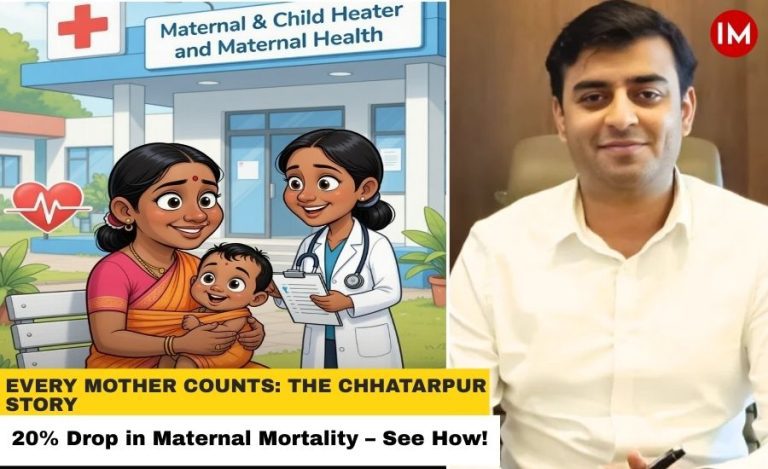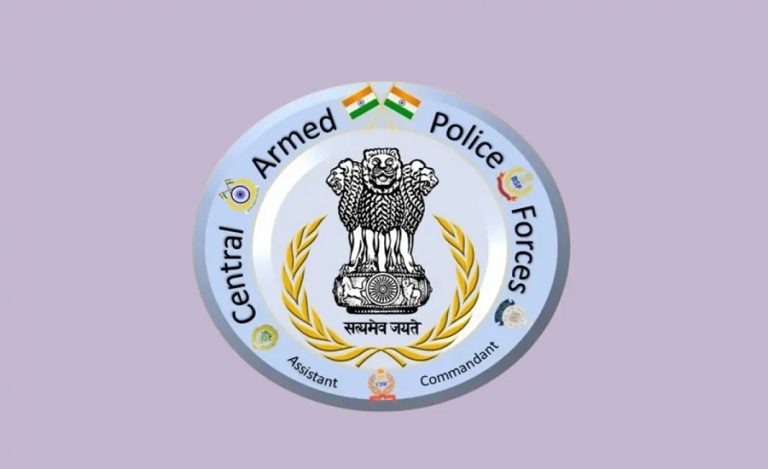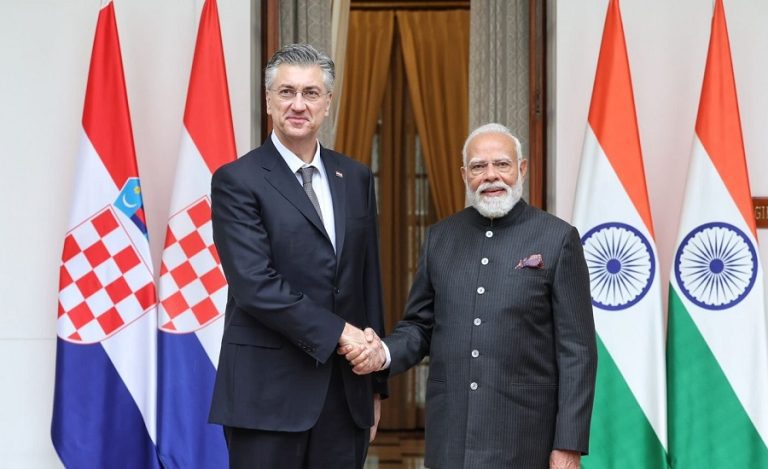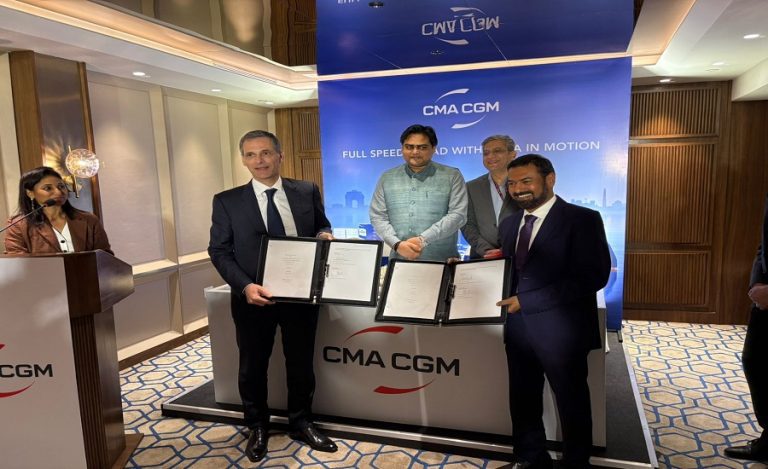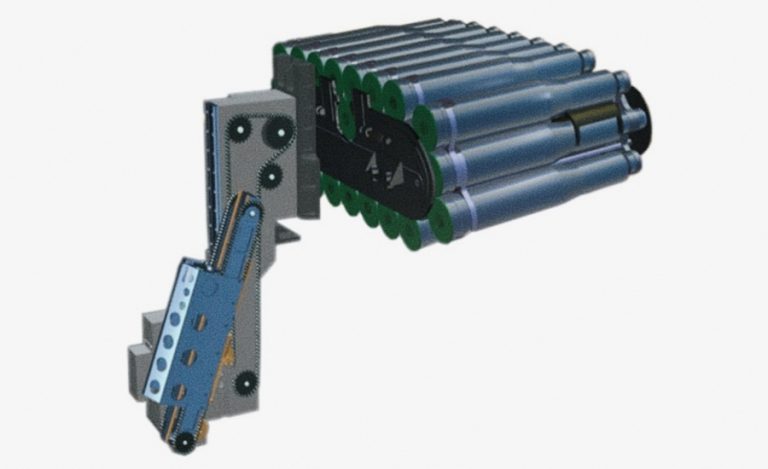In Vidisha, Madhya Pradesh, a quiet yet powerful movement is reshaping the landscape of public health. Under the leadership of District Collector Anshul Gupta, a 2016-batch IAS officer (Madhya Pradesh cadre), the district has launched Poshan Sanjeevani Abhiyan, a flagship campaign to tackle malnutrition head-on. This initiative, driven by community participation, inter-departmental collaboration, and a deep commitment to lasting change, is emerging as a national model in a state where malnutrition among children under five has long been a pressing challenge.
A DIRE CHALLENGE MET WITH DETERMINATION
Before Poshan Sanjeevani Abhiyan began, Vidisha faced alarming levels of undernutrition. Severe Acute Malnutrition (SAM), stunting, underweight children, and anaemia among women were widespread, compounded by low maternal awareness and inadequate infrastructure. These issues were not just medical but deeply societal, rooted in limited access to resources, poor dietary practices, and gaps in education. Recognising the scale of the problem, Mr Gupta and his team launched a campaign that went beyond traditional interventions, aiming to create a people-driven movement to eradicate malnutrition.
“Nutrition is not just a health issue but a societal one. Our peer educators literally hand-held families through the recovery process,” IAS Anshul Gupta told Indian Masterminds. His vision transformed malnutrition from a clinical statistic into a collective responsibility, rallying communities, government departments, and civil society to work as one.
A THREE-PRONGED STRATEGY: COMMUNITY, CONVERGENCE, COMPASSION
The success of Poshan Sanjeevani rests on its core philosophy of “Community, Convergence, Compassion.” Each pillar drives the campaign’s innovative approach, ensuring that interventions are not only effective but also sustainable.
Community: Empowering Families as Agents of Change
At the grassroots, the campaign trained peer educators—mothers and Anganwadi workers—who became the backbone of the initiative. These local champions guided families through the recovery process, offering practical advice on breastfeeding, hygiene, and dietary diversity. By empowering mothers with knowledge and tools, the campaign fostered a sense of ownership, ensuring that changes in behaviour extended beyond temporary interventions. This peer-led model proved instrumental in addressing deep-rooted habits, such as poor hygiene practices and limited dietary variety, which were among the hardest to change.
Convergence: Uniting Systems for Impact
The campaign broke down silos by bringing together the Departments of Health, Women and Child Development, Panchayati Raj, and civil society groups. This coordinated effort ensured that resources, expertise, and efforts were aligned toward a common goal. From upgrading infrastructure to delivering nutritional support, every action was synchronised to maximise impact. The result was a seamless system where no child or family fell through the cracks.
Compassion: Healing Beyond Medicine
Poshan Sanjeevani recognised that malnutrition requires more than clinical solutions. Emotional and social support became integral to the campaign, with personalised care embedded in every step. At the heart of this approach were the revamped Nutrition Rehabilitation Centres (NRCs), now called Poshan Kendras, which offered round-the-clock paediatric care, nutritional counselling, and emotional support. These centres shifted the focus from hospital-based treatment to community-orientated healing, ensuring that families felt supported throughout their journey.
TRANSFORMING NRCs INTO POSHAN KENDRAS
A cornerstone of the campaign was the transformation of five NRCs across Vidisha’s block headquarters into modern Poshan Kendras. These upgraded facilities now provide 24/7 paediatric care, nutritional monitoring, and tailored treatment plans. Unlike traditional NRCs, which focused primarily on medical interventions, Poshan Kendras integrate emotional support and community engagement. Children admitted to these centres benefit from a holistic approach that combines medical supervision with counselling for parents, fostering long-term recovery and prevention.
The officer further shared that the shift to Poshan Kendras has led to significant improvements in care quality. Families now receive comprehensive support, from medical treatment to guidance on feeding practices, ensuring that children not only recover but thrive.
POSHAN KITS: A COMMUNITY-DRIVEN SOLUTION
To address resource gaps, the campaign introduced Poshan Kits, a practical and community-backed innovation. These kits, funded through community donations, self-help group efforts, and corporate social responsibility contributions, contain hygiene essentials, steel utensils, and locally sourced nutritious food. By involving the community in their creation, the kits built a sense of collective responsibility, encouraging families to take an active role in their children’s health. The kits not only provided tangible support but also strengthened the emotional bond between communities and the campaign’s goals.
DATA-DRIVEN ACCOUNTABILITY
A key feature of Poshan Sanjeevani is its emphasis on data-driven action. The campaign employs digital dashboards, monthly reviews, and Management Information System (MIS)-based tracking to monitor progress in real time. Paediatricians and nutritionists conduct regular field visits, ensuring that interventions remain effective and adaptable. This rigorous monitoring system has enabled swift course corrections, maintaining consistent quality across all intervention points and driving measurable outcomes.
Since its launch, Poshan Sanjeevani has brought about noticeable changes in Vidisha. Community awareness about nutrition, hygiene, and feeding practices has grown significantly. Mothers, once unaware of the importance of dietary diversity, now actively follow nutrition protocols, guided by peer educators and Poshan Kendra staff. Recovery rates for children with SAM have improved, and maternal involvement has surged, reflecting the campaign’s success in fostering sustainable change.
OVERCOMING CHALLENGES
Implementing Poshan Sanjeevani was not without hurdles. Coordinating multiple departments, upgrading existing infrastructure, and institutionalising emotional support alongside clinical care posed significant challenges. Perhaps the most daunting task was changing entrenched behaviours at the grassroots level. Convincing families to adopt diverse diets and maintain hygiene required intensive counselling and persistent effort. Yet, through the peer educator model and continuous engagement, the campaign began to shift these practices, one family at a time.
A BLUEPRINT FOR THE FUTURE
Looking ahead, Vidisha’s administration plans to build on the success of Poshan Sanjeevani. The district aims to scale up Poshan Kendras to more blocks, ensuring wider coverage. The peer educator model will be deepened to sustain behavioral &
System: change, while community volunteer networks will expand to amplify impact. Data-driven monitoring will remain a cornerstone, with ongoing paediatric supervision and MIS tracking to ensure accountability and adaptability.
Poshan Sanjeevani Abhiyan is more than a campaign—it’s a movement that redefines how malnutrition can be addressed through collective action. By prioritising community engagement, inter-departmental convergence, and compassionate care, Vidisha is setting a standard for nutrition governance that could inspire other districts across India.

